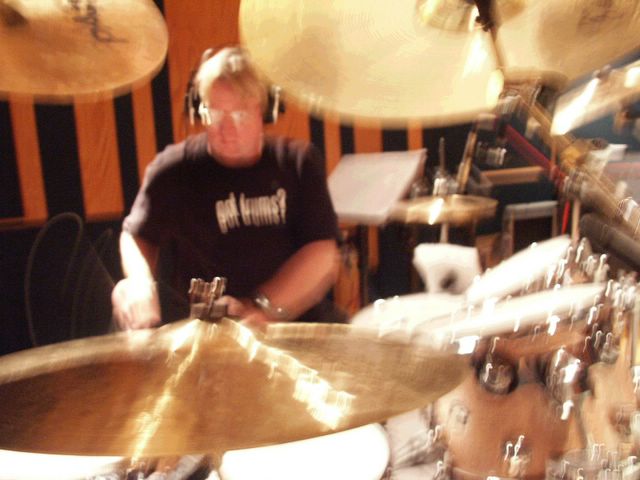Lectio Divina -Part 3 terminology
Centering prayer, Contemplative prayer, and Lectio are basically all the same thing. Focus on a word or phrase and repeat it. Other actions are sometimes mixed in with this practice here is some of other terminology which may or may not be used in conjunction with Lectio.
Abba Anthony/Antony of the Desert/of Egypt (251?—356) Traditionally described as ‘the father of monks’. His Life was written by St. Athanasius. Finally retired as an eremite (solitary desert dweller) to a mountain cave not far from the Red Sea, close to the monastery which bears his name today. Many apophthegms (pithy wisdom sayings) of Antony are preserved in the Sayings of the Desert Fathers
Apophatic style of prayer Advocates an emptying technique of meditation (emptying of images and sensations
Benedict, St., of Nursia (c. 480-547) Author of the Rule followed today by Benedictines and Cistercians, ‘father of Western monasticism’, and reviver of lectio divina in the West from its source in the East. He lived during the chaotic times of the barbarian invasions and the dissolution of the Roman Empire. Founded his famous monastery at Monte Cassino around 525.
(notice it states that the source of lectio divina was in the east-ding ding-Buddhisim, Hinduism)
Centering prayer A form of prayer designed to help develop contemplative prayer. The pray-er chooses a sacred word, dwells on that word, and focuses on any feelings, images, reflections, etc elicited by that word, remains in silence, and takes this spirit of contemplation into his/her daily life.
Dadirri In Aboriginal spirituality, deep interior listening that leads to stillness and contemplation.
Focusing A technique developed by Dr. Eugene Gendlin that harnesses the ‘felt wisdom’ of the body in order to cultivate deeper awareness of the self and the sacred text. Similar to centering prayer but concentrated more on ‘resonances’ between the classic text and the ‘felt sense’ or bodily reaction of the focuser
(Note here-sacred text could refer to any considered holy book, and notice felt sense, what happens when we cant feel God-is He no longer there? something to ask yourself)
Formative reading- (aka sacred, deep or comprehensive reading) An experiential or open style of reading undertaken by a person open to transcendent formation
Gerushin -The mantric repetition of a biblical verse;
Hagah -Mantric repetition of a biblical or sacred word or sound
The Jesus Prayer, A practice known also as the Invocation of the Holy Name. In the Orthodox tradition Jesus is invoked primarily through the frequent repetition of the ‘Jesus Prayer’, which is ‘Lord Jesus Christ, Son of God, have mercy on me’, sometimes with the words ‘a/the sinner’. As such, it is an adaptation of the prayer of the blind man outside Jericho in Lk 18:38, and has obvious parallels with the prayer of the publican in Lk 18:13.
Kataphatic style of prayer Advocates an imaginal (praying through imagery to God) technique of meditation
Ladder, image of In both the Jewish and Christian traditions, symbolic of the link between earth and heaven, and the nexus through various steps or rungs between earthly reading and higher contemplation
lectio divina Sacred or holy reading of God’s Word or a spiritual classic. This style of reading was often compared in the Middle Ages to the buzzing of bees around some consecrated hive, while the page of a text was compared to the rows of a vineyard, with the grapes of the Word [each individual letter] inviting the reader to chew and savour them until the divine juices were extracted
Muscular and aural memory A description used by Leclercq to frame monastic and medieval approaches to sacred reading. Readers of those times accentuated pronunciation of the words with their lips, often following the text with the finger and rocking with the body to the rhythm of the words. This resulted in a muscular memory of the words pronounced, and an aural memory of the words heard. This approach served to ‘inscribe’ the sacred text in the body and on the soul like a stylus on soft wax
Projection The Ignatian method of reading scripture whereby we place ourselves back into the biblical situation and try to imagine our emotional and physical responses to the words and events taking place
(note in some circles this is refered to as Astral projection)
Teresa of Avila/ of Jesus (1515-1582) Mystic, founder of the Discalced Carmelites, and declared first female Doctor of the Church in 1970.
I recently listened to a radio program called Crosstalk whose host is Ingrid Schultler a friend of mine she was interviewing Brian Flynn who wrote the book "Running Against the Wind." A witch called in and made the comment how so many things we do in church is now so very similar to rituals and practices he performed with the help of the goddess.
If a witch was suprised why isnt the church suprised?



0 Comments:
Post a Comment
<< Home